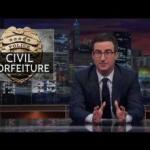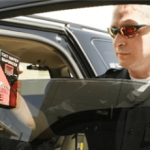OPINION
PER CURIAM.
Claimant appeals from an order of forfeiture (pursuant to the controlled substances act, MCL 333.7521; MSA 14.15(7521)) of $ 10,500 found in claimant's truck, following a traffic stop. We affirm.
MCL 333.7521(1)(f); MSA 14.15(7521)(1)(f) provides, in relevant part:
Any thing of value that is furnished or intended to be furnished in exchange for a controlled substance . . . or that is used or intended to be used to facilitate any violation of this article [is subject to forfeiture].
A forfeiture proceeding is an in rem civil proceeding; the claimant has the burden of proving its claim to the money by a preponderance of the evidence, and the findings of fact by the trial court sitting without a jury will not be set aside on appeal unless this Court finds that they are clearly erroneous. In re Forfeiture of $ 18,000, 189 Mich App 1, 4-5; 471 NW2d 628 (1991).
Here, claimant contends that the prosecution failed to produce evidence that showed a substantial connection between the money and a particular drug transaction. In order for an asset to be forfeited, the trial court must find that there is a substantial connection between that asset and the underlying criminal activity -- property that has only an incidental or fortuitous connection to the unlawful activity is not subject to forfeiture. In re Forfeiture of $ 1,159,420, 194 Mich App 134,146; 486 NW2d 326 (1992). However, plaintiff need not prove a connection with a specific incident of drug dealing for each asset -- the assets need only be traceable to drug trafficking. Id., 194 Mich App at 147. Therefore, plaintiff need only produce sufficient evidence to show a substantial connection between the money and drug trafficking.
Here, the $ 10,500 was found in a paper bag under the seat in claimant's pickup truck. The money was folded and bundled in rubber bands in $ 1,000 amounts, with $ 500 lying loose in the bottom of the bag. Although no drugs were found in the truck, officers later hid the money and a police dog located it by the smell of narcotics on the bills. The narcotics enforcement team officer, Russell, testified that the way the money was bundled and carried was indicative of money used in drug trafficking, and that he had never seen anyone who was not involved in drug trafficking carry money in that manner. He also testified that, although he had never investigated claimant or made an undercover purchase from him, the address on claimant's driver's license was the target of an investigation. Russell was also personally involved in a controlled purchase of narcotics and the serving of a search warrant at claimant's address. Russell also testified that claimant's girlfriend, Bobbie Jo White, was a relative of targeted drug dealers, and that Russell made a controlled purchase of narcotics at the trailer park (where claimant and his girlfriend were living at the time of the traffic stop), in which he was told that the dealer of the drugs was Bob White.
There was also testimony that claimant told an investigator that he made only $ 23,000 per year. Also, though he told investigators he had the cash because he did not believe in banks, he had a savings and checking account at a credit union.
In addition, when called to testify, claimant asserted his Fifth Amendment privilege. Because this is a civil proceeding, the trial judge could make an adverse inference from this. Phillips v Deihm, 213 Mich App 389, 400; 541 NW2d 566 (1995).
Based upon the evidence and claimant's decision not to testify, we cannot definitely and firmly conclude that the trial court committed a mistake, or that its view of the evidence is not plausible. Therefore, the trial court's finding that the preponderance of the evidence showed that the money was linked to drug trafficking is not clearly erroneous, and must be affirmed. Beason v Beason, 435 Mich 791, 805; 460 NW2d 207 (1990); In re $ 1,159,420, supra; In re $ 18,000, supra.
Affirmed.
/s/ Henry William Saad
/s/ Donald E. Holbrook, Jr.
/s/ George S. Buth





